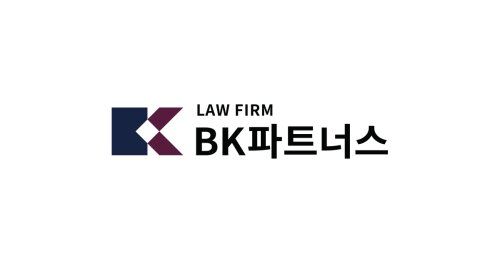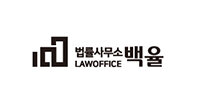Best Faith-Based Law Lawyers in South Korea
Share your needs with us, get contacted by law firms.
Free. Takes 2 min.
Or refine your search by selecting a city:
List of the best lawyers in South Korea
About Faith-Based Law in South Korea
Faith-Based Law in South Korea refers to the framework of laws and regulations that govern matters related to religious practices, organizations, and communities. Although South Korea is a secular state, its legal system respects religious freedoms, protecting the rights of various faith communities to operate within a legal framework. This field of law encompasses issues such as religious organization registration, employment related to religious duties, land use for religious purposes, and the resolution of disputes within religious bodies. It aims to ensure that religious practices and institutions can function peacefully and in alignment with national law.
Why You May Need a Lawyer
There are several circumstances where individuals or religious entities in South Korea might require legal assistance in the realm of Faith-Based Law:
- Establishing or registering a religious organization within South Korean legal frameworks.
- Navigating employment laws concerning religious workers, including contracts and labor disputes.
- Addressing zoning laws and property use issues relevant to religious sites or worship places.
- Assisting with legal aspects of religious education institutions or faith-based charitable organizations.
- Resolving internal conflicts or governance disputes within a religious community.
Local Laws Overview
Faith-Based Law in South Korea is largely influenced by general civil and administrative laws that apply to all non-governmental organizations, including religious bodies. Key aspects include:
- Freedom of Religion: Enshrined in the South Korean Constitution, it guarantees religious freedom and prohibits discrimination based on religion.
- Registration of Religious Entities: Religious organizations may be required to register with the government to gain legal standing and access to certain benefits.
- Employment Law: Religious organizations must comply with national labor laws, though certain exemptions exist for religious roles regarding employment practices.
- Property and Zoning Regulations: Rules governing land use and construction can affect religious sites, requiring compliance with local zoning laws.
- Education Law: Religious schools are subject to national educational standards but may have some leeway in religious instruction.
Frequently Asked Questions
What is the process for registering a religious organization in South Korea?
To register a religious organization, you must apply akin to registering a non-profit, generally requiring documentation of your religious activities and organizational structure.
Are religious organizations in South Korea subject to taxation?
Registered religious organizations typically enjoy some tax exemptions, but specifics can vary based on the activities and income sources.
Can foreign religious entities establish branches in South Korea?
Yes, foreign religious organizations can establish branches, but they must comply with South Korea’s laws and might need to go through specific registration processes.
What are the legal requirements for building a new place of worship?
Building a place of worship involves complying with local zoning laws, obtaining construction permits, and sometimes facing community consultations.
How does South Korean law protect against religious discrimination?
The Constitution of South Korea prohibits discrimination based on religion and ensures freedom of religious practice.
Can religious workers receive special visas to work in South Korea?
Yes, religious workers can apply for specific types of visas designed for religious activities, subject to particular conditions and documentation.
What legal protections exist for religious conversions in South Korea?
While the Constitution guarantees freedom of religion, including the choice to convert, South Korea does not permit forced conversions or any related coercive practices.
How are religious disputes within a community typically resolved?
Many religious disputes are settled internally through mediation or religious adjudicative processes, but legal recourse is available if needed.
What roles do religious organizations play in South Korean education?
Religious organizations may run schools and provide religious education, subject to national educational regulations and standards.
What is the role of the government in regulating religious activities?
The government maintains a neutral stance but ensures religious activities comply with national laws, intervening only when legal standards are not met.
Additional Resources
Consider reaching out to the following resources for more information or assistance:
- Ministry of Culture, Sports, and Tourism: Oversees many aspects of religious activity regulation in South Korea.
- Korean National Human Rights Commission: Addresses concerns related to religious discrimination.
- Local legal aid organizations: Offer guidance on matters of religious law and community affairs.
- Major religious federations or councils: Can provide internal handling or mediation of religious disputes.
Next Steps
If you need legal assistance in Faith-Based Law, your first step should be to consult with a lawyer experienced in South Korean religious and civil law. This can help ensure that your rights and interests are adequately protected. You may also consider contacting relevant governmental bodies or seeking mediation through religious or civil organizations applicable to your situation. Evaluating your specific needs and circumstances with professional guidance will help you navigate the legal landscape effectively.
Lawzana helps you find the best lawyers and law firms in South Korea through a curated and pre-screened list of qualified legal professionals. Our platform offers rankings and detailed profiles of attorneys and law firms, allowing you to compare based on practice areas, including Faith-Based Law, experience, and client feedback.
Each profile includes a description of the firm's areas of practice, client reviews, team members and partners, year of establishment, spoken languages, office locations, contact information, social media presence, and any published articles or resources. Most firms on our platform speak English and are experienced in both local and international legal matters.
Get a quote from top-rated law firms in South Korea — quickly, securely, and without unnecessary hassle.
Disclaimer:
The information provided on this page is for general informational purposes only and does not constitute legal advice. While we strive to ensure the accuracy and relevance of the content, legal information may change over time, and interpretations of the law can vary. You should always consult with a qualified legal professional for advice specific to your situation.
We disclaim all liability for actions taken or not taken based on the content of this page. If you believe any information is incorrect or outdated, please contact us, and we will review and update it where appropriate.
Browse faith-based law law firms by city in South Korea
Refine your search by selecting a city.












